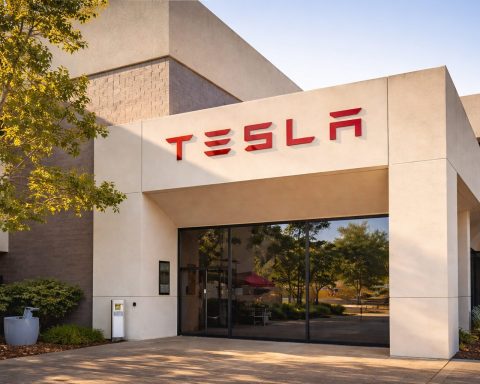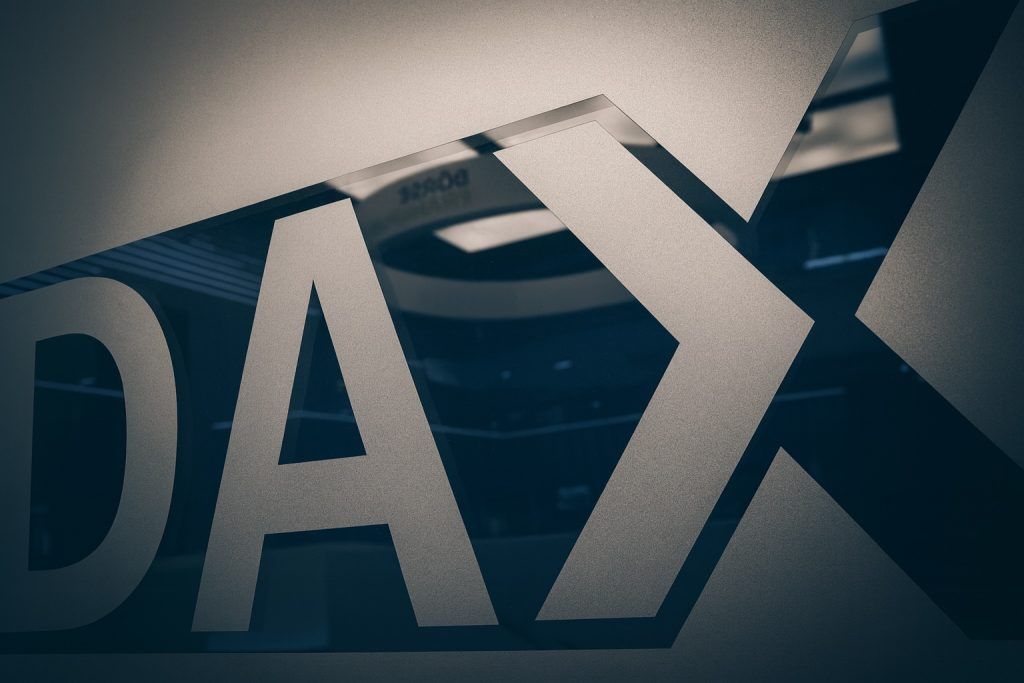Washington DC’s emergency tax bill decouples the District from Trump’s One Big Beautiful Bill, ending local tax breaks for tips, overtime, and a $6,000 senior deduction while funding a new child tax credit and a bigger Earned Income Tax Credit.
Key takeaways
- D.C. has passed an emergency tax bill “decoupling” its tax code from key parts of Donald Trump’s One Big Beautiful Bill Act (OBBB). That means the city will not mirror new federal tax breaks for tips, overtime pay and a new $6,000 “senior bonus” deduction on local returns. Kiplinger+1
- Residents could lose up to $6,000 in expected local tax relief, according to tabloid coverage, particularly seniors and workers who had hoped their tips and overtime would be tax‑free at both federal and D.C. levels. The Sun+1
- In exchange, D.C. will use the saved revenue to fund a new $1,000-per-child local Child Tax Credit and boost the District’s Earned Income Tax Credit (EITC) to 100% of the federal credit starting with tax year 2025. Council of the District of Columbia+2Kipli…
- The emergency law took effect after the Council’s November 7 meeting and is in place for 90 days, with a 225‑day temporary extension planned while permanent legislation is debated. Council of the District of Columbia+2Kipli…
- The move comes as D.C. faces a projected $1 billion revenue shortfall over four years and the loss of roughly 40,000 federal government‑related jobs linked to a prolonged shutdown and broader economic shifts. Kiplinger+2Newsweek+2
What D.C.’s new emergency tax bill actually does
The District of Columbia has long been a “rolling conformity” jurisdiction: when federal tax policy changes, D.C. typically follows automatically unless lawmakers step in. Council of the District of Columbia
That’s exactly what the Council just did.
On November 7, the D.C. Council passed an emergency decoupling bill that breaks the automatic link to 13 of the 84 tax provisions in Trump’s sweeping One Big Beautiful Bill Act (OBBB), signed into law on July 4. Council of the District of Columbia+2Bipar…
According to the Council’s own explanation and follow‑up reporting in Kiplinger, Newsweek and The Sun, the emergency bill means: The Sun+4Council of the District of Columb…
- No local “no tax on tips” break. D.C. will not adopt the federal deduction that lets eligible workers effectively exclude up to $25,000 in tips from federal taxable income. Kiplinger+3IRS+3Kiplinger+3
- No local “no tax on overtime” break. D.C. will not conform to the OBBB provision that allows eligible workers to deduct the “overtime” portion of their pay (up to $12,500 for single filers and $25,000 for joint filers) from federal income tax. Kiplinger+3IRS+3Bipartisan Policy Center+3
- No $6,000 “senior bonus” deduction on D.C. returns. Seniors aged 65 and over will still get the new $6,000 federal deduction created by OBBB, but it will not flow through to District income tax calculations. The Sun+4IRS+4The White House+4
- No local adoption of certain business tax breaks. The bill also decouples D.C. from immediate expensing of research and development (R&D) costs and special “bonus” depreciation allowances that OBBB expanded at the federal level. Kiplinger+2Council of the District of Colu…
In plain English: D.C. residents will still see generous tax relief on their federal returns, but their D.C. income tax bill won’t reflect those same breaks.
Kiplinger warns that this “non‑conformity” could surprise taxpayers who assumed the federal “no tax on tips and overtime” marketing applied equally to state and local taxes. Kiplinger+1
Who loses local tax breaks – and who gains new credits?
Service and hospitality workers: tips and overtime stay taxable in D.C.
The most headline‑grabbing change concerns tipped and overtime workers.
Under OBBB, qualifying tipped workers can deduct up to $25,000 in reported tips from federal income tax, while overtime workers can deduct up to $12,500 in overtime pay ($25,000 for joint filers) in the form of a federal deduction. Kiplinger+3IRS+3Bipartisan Policy Center+3
According to Newsweek, D.C.’s emergency bill blocks those deductions from being mirrored on local returns, meaning: Newsweek+1
- Tips and overtime may be federal‑tax‑favored,
- But they will still be fully subject to D.C. income tax.
That’s a big deal in a city with a large restaurant, bar, hotel and rideshare workforce. D.C.’s progressive income tax ranges roughly from 4% to 10.75%, depending on income. Valur+2Kiplinger+2
Tabloid coverage in The Sun frames the move starkly: “Americans to lose up to $6,000 in tax relief immediately” as D.C. refuses to pass through key provisions of Trump’s tax law to local taxpayers. The Sun+1
Seniors: the $6,000 “bonus” deduction won’t apply to DC taxes
OBBB created a new $6,000 additional federal deduction for seniors 65 and older, on top of the existing extra standard deduction, aiming to ensure that most Social Security income is effectively tax‑free at the federal level. IRS+1
But D.C.’s emergency bill cuts that federal bonus off at the city limits.
- For federal taxes, eligible D.C. seniors still get the full $6,000 deduction.
- For D.C. income taxes, that extra deduction won’t apply, meaning local taxable income stays higher than it would have under automatic conformity. Kiplinger+2Kiplinger+2
That’s the core of the “up to $6,000” local tax relief loss highlighted by The Sun and discussed in Kiplinger’s analysis. The Sun+2Kiplinger+2
Businesses: slower write‑offs for R&D and equipment
On the business side, D.C. is also rejecting faster write‑offs that OBBB offers at the federal level:
- Immediate expensing of R&D costs
- Expanded bonus depreciation for certain qualified property Kiplinger+2Council of the District of Colu…
Companies operating in D.C. will still be able to take those breaks on their federal returns, but not on their D.C. corporate or unincorporated business tax filings.
Low- and middle-income families: bigger EITC and a new child tax credit
So where is all this money going instead?
According to the Council and multiple outlets, D.C. will spend a significant share of the “saved” revenue on families with children and low‑income workers: The Sun+4Council of the District of Columb…
- EITC match jumps to 100% of the federal credit starting in tax year 2025. The District had planned to reach full parity in 2029; the decoupling bill accelerates this timeline by four years.
- A new local Child Tax Credit of $1,000 per child (under age 18) begins in tax year 2026. It is targeted at:
- Single filers earning under $75,000, and
- Couples earning under $90,000.
Supporters, including anti‑poverty groups cited in Kiplinger and the Council’s own release, argue that redirecting funds from broad‑based tax breaks (like no tax on tips) to targeted credits is a more effective way to cut child poverty, which affects about one in seven children in the District. Kiplinger+2Council of the District of Colu…
Why city leaders say they had no choice
The timing of D.C.’s move is no coincidence.
Kiplinger reports that Chief Financial Officer Glen Lee warned city leaders this fall that a historic federal government shutdown and knock‑on effects could cost the District roughly $1 billion in revenue over the next four years, driven largely by the expected loss of around 40,000 federal government‑related jobs. The Sun+3Kiplinger+3Kiplinger+3
At the same time, Trump’s One Big Beautiful Bill was poised to significantly cut federal income tax bills, especially for: The Washington Post+4Bipartisan Policy Cen…
- Tipped and overtime workers
- Seniors
- Families with children
- Some businesses benefiting from R&D and depreciation perks
If D.C. had silently followed along with those federal changes, the Council estimated it would forgo $95 million in revenue in fiscal year 2025 and about $567 million through 2029. The Sun+3Kiplinger+3Council of the Distric…
Instead, lawmakers opted to break from federal policy on a limited set of high‑cost items, while still conforming to most of the 84 OBBB tax provisions.
In its own words, the Council framed the move as drawing “a bright line of demarcation between who federal and District governments and tax policies choose to benefit,” signaling a conscious decision to favor targeted anti‑poverty credits over broad deductions. Council of the District of Columbia
How much more could you pay in DC tax?
Your actual bill will depend on your income, filing status and how much of your earnings are in tips or overtime. But you can get a ballpark sense by looking at D.C.’s tax brackets.
For tax year 2025, D.C. income tax rates run from 4% up to 10.75%, with many middle‑income residents falling into brackets around 6–8.5%. Valur+2Kiplinger+2
Here are simplified examples (these are rough illustrations, not personalized tax advice):
- A restaurant server who planned to deduct $10,000 in tips locally.
- If she is in roughly an 8.5% D.C. bracket, losing that deduction could mean about $850 more in District income tax than she might have expected under full conformity with OBBB.
- A nurse counting on the full $12,500 overtime deduction.
- In the same 8.5% bracket, the lost local deduction could translate into roughly $1,062 more in D.C. tax compared with a world where the District followed federal rules.
- A senior expecting the $6,000 “bonus” deduction to apply to D.C. tax.
- If they’re in a 6.5% local bracket, losing that deduction could add about $390 to their D.C. tax bill.
Again, these are very rough estimates that assume the deductions would have been fully usable at the local level and ignore other credits and adjustments.
The key practical point:
If you live or work in D.C., don’t assume the federal “no tax on tips or overtime” and senior bonus rules will automatically shrink your D.C. income tax bill.
For detailed planning, residents should consider using a D.C. tax calculator or consulting a tax professional who understands the new decoupling rules. SmartAsset+1
The bigger fight over ‘No Tax on Tips’
What’s happening in D.C. is part of a national tug‑of‑war over how generous Trump’s new tax breaks should be — and who should pay for them.
At the federal level, Trump and Republican leaders have aggressively marketed OBBB’s “No Tax on Tips” and “No Tax on Overtime” provisions as kitchen‑table wins for working Americans, citing average annual savings of about $1,300 from tax‑free tips and $1,400 from tax‑free overtime. The White House+2Bipartisan Policy Center+…
Independent analysis from the Bipartisan Policy Center and others notes that: Bipartisan Policy Center+2Bipartisan Polic…
- The biggest federal benefits tend to go to workers with higher taxable incomes, because deductions are worth more at higher marginal tax rates.
- Many very low‑income tipped workers already owe no federal income tax after the standard deduction, so the new deductions may not help them much.
- The federal provisions add tens of billions of dollars to the deficit over the coming decade.
Now, states and D.C. are wrestling with whether to absorb that revenue loss at the local level.
Kiplinger notes that New York has effectively blocked the federal tips and overtime deductions by freezing its conformity date, while Colorado had already acted to keep overtime fully taxable at the state level even before OBBB passed. Several states, including Michigan, Rhode Island and Illinois, have also moved to decouple from certain business tax cuts like bonus depreciation and R&D write‑offs. Kiplinger+2Council of the District of Colu…
Right‑leaning outlets such as The National Pulse framed D.C.’s move today as “Democrat City Council moves to block Trump’s No Tax on Tips, Overtime Policy,” highlighting the partisan and ideological divide over how far the new tax law should go. The National Pulse+1
What happens next for D.C. taxpayers
Today’s Newsweek and Sun coverage underscores that, for many D.C. residents, the real impact of the Council’s November 7 vote is only now coming into focus. Newsweek+2The Sun+2
Here’s what to watch:
- Duration of the changes
- The emergency legislation is effective for 90 days, followed by a 225‑day temporary extension designed to carry the city through most of the upcoming tax filing season. Kiplinger+3Council of the District of Colu…
- After that, the Council will need to pass permanent legislation if it wants these decouplings to stay in place through 2028, when the federal tips, overtime and senior bonus provisions are currently scheduled to expire. (Lawmakers have heavily signaled that permanent decoupling is on the table, but details are still to come.) This forward‑looking assessment is based on the Council’s statements and the temporary structure of the bill. IRS+3Council of the District of Columbia+3…
- Guidance from D.C.’s tax office
- The Office of Tax and Revenue is expected to publish updated instructions and FAQs clarifying exactly how to report tips, overtime and senior income on 2025 D.C. returns, especially where federal and local rules diverge. Council of the District of Columbia+2Offic…
- Political fallout
- With national media now weighing in, today’s coverage is likely just the start of a fierce political debate:
- Supporters: argue D.C. is wisely preserving its tax base and redirecting money to families who need it most. Kiplinger+2Council of the District of Colu…
- Critics: accuse the Council of “taking away” Trump’s promised tax relief from workers and seniors at the local level. The National Pulse+1
- With national media now weighing in, today’s coverage is likely just the start of a fierce political debate:
- Your personal to‑do list
While this article can’t give personalized tax advice, most D.C. residents will want to:- Review their 2025 paycheck and withholding to avoid unpleasant surprises next spring. SmartAsset+1
- Track tips and overtime carefully — they still matter a lot for federal tax, even if D.C. won’t match the breaks. IRS+1
- Check eligibility for the expanded D.C. EITC and new Child Tax Credit if they have lower or moderate incomes and children. Council of the District of Columbia+1
- Talk to a qualified tax professional familiar with D.C. law before filing 2025 returns, especially if their income includes significant tips, overtime, or they are 65+ and counting on the new federal senior deduction.
As Trump’s One Big Beautiful Bill reshapes the federal tax landscape, Washington, D.C. has become one of the first jurisdictions to draw a firm boundary between federal promises and local realities.
Today’s coverage from Newsweek, Kiplinger and The Sun marks the moment when that boundary stops being an abstract policy choice — and starts showing up in what D.C. workers, seniors and families will actually owe.









